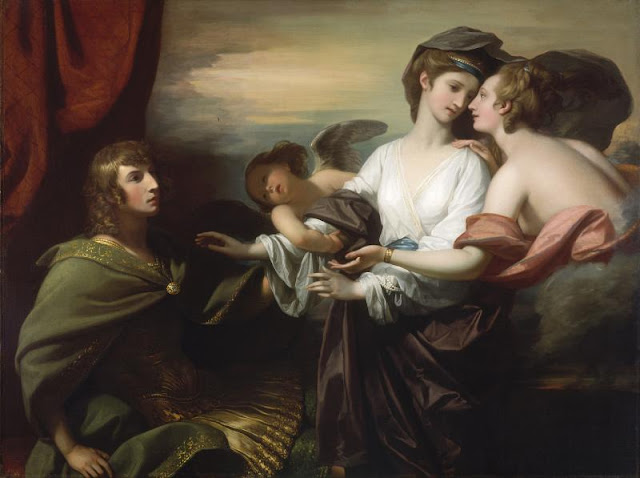Helen or Helen of Troy was the daughter of Zeus and Leda in Greek mythology, although her putative father was Tyndareus. A twin sister of Clytemnestra, she also had the twin brothers Castor and Pollux, also known as the Dioscuri. She was considered to be the most beautiful woman in the known world.
Initially she was abducted by the hero Theseus, who left her in the protection of his mother Aethra while he was away adventuring. During that time, Athens was invaded by the Spartan army led by Castor and Pollux, taking Helen back and capturing Aethra instead.
Later, a number of suitors tried to win her hand, eventually Menelaus being the victor. All suitors, though, were bound by an oath to assist, in case Helen would be abducted in the future. Her marriage to Menelaus, king of Sparta, saw her ascend to the throne of the city as a queen. They had a daughter, Hermione, and three sons, Aethiolas, Maraphius and Pleisthenes. The marriage of Helen and Menelaus marked the beginning of the end for the age of heroes, which was Zeus' decision and was brought upon with the culmination of events to the Trojan War.
When Menelaus realised what had happened, he asked all the suitors to help him bring his wife back, as they had sworn initially. This is how the Trojan War started. In some accounts, Helen was thought to prosper in the city of Troy and be a treacherous woman, but in other stories, she was considered to be in constant gloom and sorrow.
There are also different stories about her fate. After she returned to Sparta, Menelaus tried to kill her for her treachery, however she disrobed and her beauty weakened Menelaus and made him drop his sword. In another version, she was thought to have gone to Mount Olympus, while yet a different account says she eventually went to the Underworld to spend eternity with Achilles.

Comments
Post a Comment